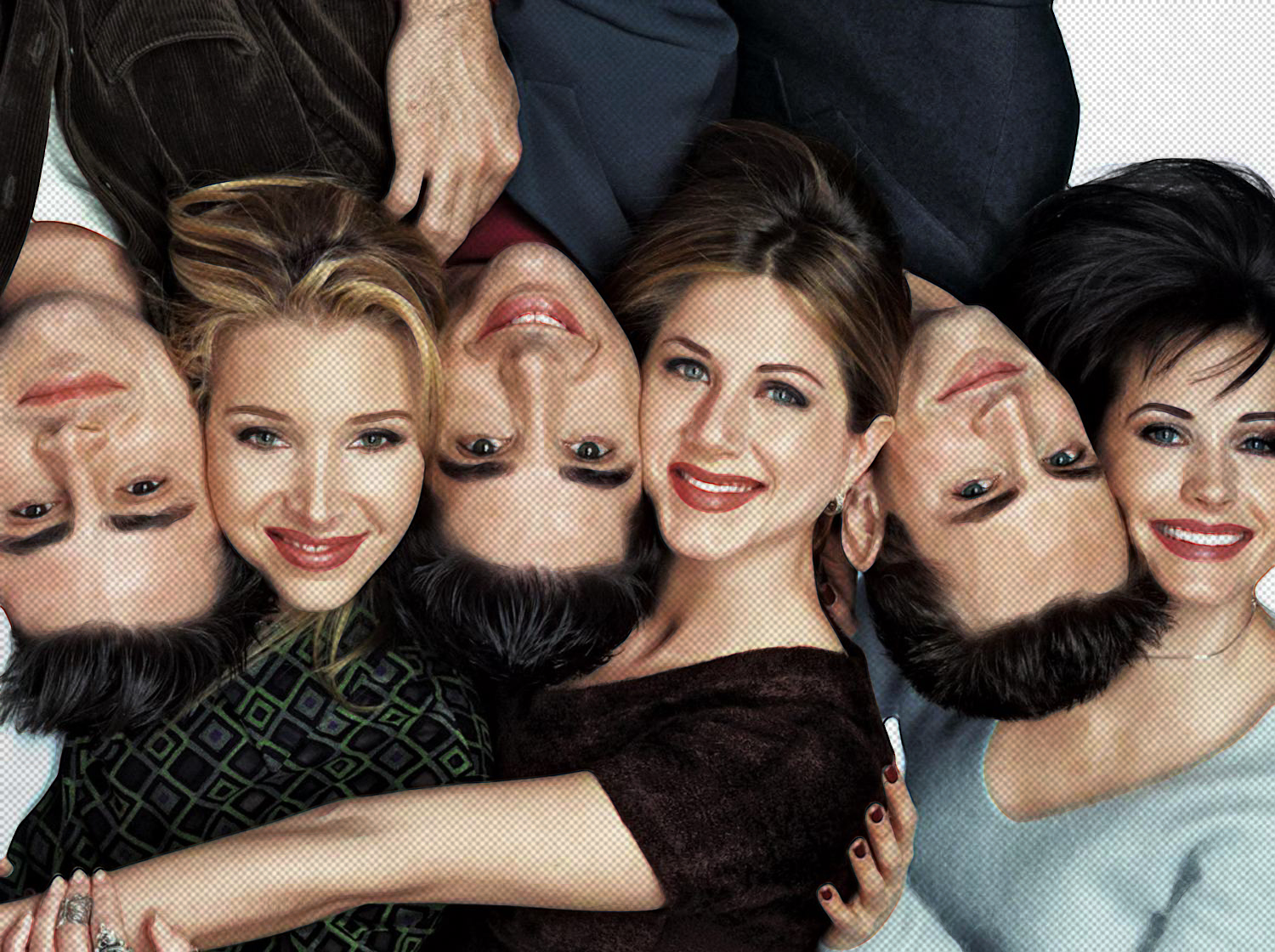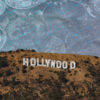Late last month, a piece from the website Insider went semi-viral, and both the piece itself and the reactions to it are instructive of several unfortunate trends in the pop culture commentary of today, and even more in the reactions to it.
The piece, by Louis Baragona, had the headline “Sorry, but ‘Friends’ is overrated at best and problematic at worst,” and took various shots about the popular ’90s sitcom that remains hugely popular on Netflix.
The piece was published in January of 2018, nearly a year and a half ago, but had a cycle of near-virality recently, probably because it was posted May 28 to the Facebook page of the Insider, which nearest I can gather is the pop culture vertical of Business Insider. The Facebook post got over 1,000 comments, indicating that among other things, no one on Facebook checks the dateline of anything they read.
…the piece itself and the reactions to it are instructive of several unfortunate trends in the pop culture commentary of today…
“Newsflash: Just because something is iconic or legendary enough to be considered a classic doesn’t mean that it’s actually good,” Baragona writes, and goes on to throw a few charges at Friends: That it has an entirely white and straight main cast, and a writer’s room that wasn’t much more diverse than that. That the characters are all relatively wealthy. And that it often treats gay and trans characters as punchlines.
The author goes on to suggest some other, better shows from the ’90s to stream instead, such as Living Single and My So Called Life.
Sorry, but…
I do agree with some of the surface critiques of the piece. First things first: No headline should ever begin with the phrase “Sorry, but…” If you have to say you’re sorry for what you’re about to write, right out of the gate, then you’re better off not having written it at all.
But beyond that, the author isn’t sharing critiques that haven’t been made for years about Friends, most notably its whiteness, including ones made during its run back in the 1990s. On the sexism question, there was even a high-profile lawsuit, filed all the way back in 2002, alleging sexual harassment in the Friends writer’s room.
There has, in fact, been a lot of really interesting writing about the question of how Friends holds up today. Slate’s Ruth Graham, back in 2015, wrote a piece recognizing, convincingly, that Chandler Bing was kind of an asshole, who treated the women in his life like crap and was even worse to his transgender father.
…the author isn’t sharing critiques that haven’t been made for years about Friends, most notably its whiteness, including ones made during its run back in the 1990s.
In 2017, a woman using the Twitter handle Kane and Griffin wrote a more than 100-tweet thread about how Joey was a much better boyfriend for Rachel than Ross, and actually had respect for her in a way that Ross didn’t. I went through high school and college in the ’90s, a time when roughly half the women I knew openly declared that they were looking for a guy like Ross. But that thread? I was convinced, for sure.
Friends was also groundbreaking for another reason, as pointed out by Alan Sepinwall and Matt Zoller Seitz in their indispensable TV: The Book: It was the first-ever major sitcom in which all the characters were good-looking. Sitcoms weren’t like that before, since TV producers were long under the impression that pretty people weren’t funny and vice versa, but since Friends, they’ve never looked back.
Yet he’s not wrong…
My wife and I recently re-watched all of Friends, and my takeaway – aside from laughing at nearly a decade of Chandler and Ross dressing the way I used to in the ’90s, and reaffirming that the “Smelly Cat” song was never funny the first, second, or 100th time – is that the majority of the show’s comedy holds up, as does the acting and relationships.
But yeah – there’s quite a bit of humor in there, especially stuff that’s misogynistic and anti-gay, that just lands with a thud to modern ears. On that, Louis Baragona absolutely has a point.
Seinfeld got some of this criticism too, but that show at least had restauranteurs that were Pakistani and bodega owners who were Dominican and soup vendors who were South Asian…
It’s also very true that Friends was a show about New York City in which just about everyone was rich, straight, and white – in a way that’s very much not representative of the real New York.
Seinfeld got some of this criticism too, but that show at least had restauranteurs that were Pakistani and bodega owners who were Dominican and soup vendors who were South Asian, in a way that bore at least a passing resemblance to the actual New York City (both shows were filmed in Los Angeles.) On Friends, whenever a character got in a cab, the driver was a non-accented white guy. In the five years I lived in New York, I don’t think that happened to me a single time.
“Friends could never be made today”
I’ve written before about the fallacy of “That Movie Could Never Be Made Today,” which is a frequent complaint made about movies and other art of the past that stand out in a way that indicates their “problematic” elements would never work in today’s supposedly stifling PC environment.
My belief is that people are nearly always wrong when they say this. Movies (and TV shows) are products of their own times, in a hundred ways large and small, which is why they were made when they were made instead of at another time. Often elements of movies that would never be included today (i.e., full-on homophobia, or a story about the civil rights era in which white people are the protagonists and heroes) couldn’t be made today for a very good reason. And more often than not, when people say “that movie couldn’t be made today,” what they really mean is, “that movie could be made today, but if it was, people I don’t like might criticize it.”
How does that apply to Friends? I think most people watching it, or any other show from a different decade, are able to process and make peace with the show being a product of the time in which it was made. Some parts of it hold up, others don’t, and your mileage may vary as to whether the latter ruins the former for you. If it does, that’s okay. If it doesn’t… that’s also okay.
If Friends were made today, it could very easily have the same structure, but chances are at least a main character or two would be of color, or LGBT, or something other than a straight white person. Many of the show’s imitators and successors in the years since, such as Happy Endings, did just that, much to the benefit of the show.
Friends is Here to Stay
So let’s say you read the piece, and you’re outraged. How dare this angry, blinkered, privileged millennial attack Friends? What’s he thinking? Is he triggered? Does he need a safe space?
Relax. You’re going to be okay, and so is Friends. It’s not getting cancelled- proverbially, or literally, nor is it being taken away from you. Nor is anyone even pushing for that to happen, nor would they be able to do so even if they did. Friends is going to continue to be one of the most-streamed shows on television for another year, and sometime in the next few months Netflix or another service will cough up another $100 million or even more for its streaming rights, problematic or not.
Even if you consider the “Friends is problematic” piece and others like it the epitome of culture killjoyism, such pieces aren’t going to have any negative effect.
If you think this argument is stupid, ridiculous and wrongheaded, you are welcome to ignore it, and take solace in the fact that its author has no power to ruin either the show you like or your enjoyment of it. And if this piece or one like it is actively ruining your enjoyment of Friends, then that’s on you more than it is the author. And if that’s the case, you might just agree more with the author than you’re prepared to admit.




